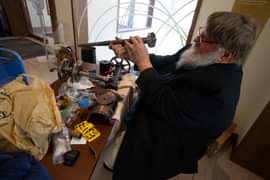
August 31, 2020
When the dust settles
Considering the long-term macroeconomic implications of the COVID-19 pandemicby Megan Greene ’97
The coronavirus crisis will leave no one untouched by the time it’s contained. Tens of thousands will have lost their lives; tens of millions will have lost their jobs. There are likely to be long-term macroeconomic implications once we begin to recover. Most of these trends were already underway, but will be accelerated by the crisis.
When the recovery takes hold, nationalism and protectionism will remain firmly in place. Before the virus hit, the United States already had imposed trade tariffs on China, but the current crisis has pushed other countries to adopt go-it-alone strategies as well. In March, France and Germany banned sales of crucial hospital equipment abroad, including to virus-hit Italy (the European Commission stepped in with a compromise). The United Kingdom, South Korea, Brazil, India, Turkey, Russia, and dozens of other countries have restricted exports of medical supplies, pharmaceuticals, and food. The asynchronous nature of this crisis means some economies will be reopening even as others are still reeling. And we can expect companies everywhere will seek relief from import competition through tariffs.
For the U.S., this could lead to a new industrial policy, something that has been taboo for years. Republicans have traditionally scorned the idea of Big Government, but are increasingly calling for a national strategy to identify important sectors to support. There have been active discussions about which industries to bail out, and Congress and the White House are debating tax incentives to encourage manufacturing firms to return to the U.S. And global supply chains are likely to be regionalized so American companies are less reliant on China for parts. This may be more expensive, and so corporate profitability could fall.
COVID-19 will also accelerate income inequality. Roughly one-third of today’s production and non-supervisory employees—the worker bees—make their living in restaurants, bars, stores, hotels, and other service jobs. These Americans have seen weak wage growth over the past decade and were the first ones hit by this crisis. More Americans have filed for unemployment benefits in the past few months than jobs created since the Global Financial Crisis. A further rise in market concentration could exacerbate low wage growth for American workers. Since 1997, about 75 percent of industries in the U.S. have become more concentrated, leaving workers with fewer employment options. That in turn limits their bargaining power for wages and benefits. Small companies will have the hardest time keeping the lights on in the face of the sudden stop in revenues. They may be replaced by big companies that can access the capital markets and are better equipped to weather this shock.
 Megan Greene is a senior fellow at the Mossavar-Rahmani Center for Business and Government at the Harvard Kennedy School. She is a frequent keynote speaker and has a biweekly column in the Financial Times on global macroeconomics.
Megan Greene is a senior fellow at the Mossavar-Rahmani Center for Business and Government at the Harvard Kennedy School. She is a frequent keynote speaker and has a biweekly column in the Financial Times on global macroeconomics.
The way we work will probably be forever changed as well. The technology to work remotely has existed for years, but there has been a cultural resistance to it. The grueling multicity roadshows I used to do are probably a vestige of the past, and the multitude of Zoom lectures and webinars I’ve participated in globally since this began are here to stay. In this lockdown period, those of us fortunate to still have jobs have had to be productive with fewer resources. Meanwhile, managers may be more willing to let people work from home, and so fewer people may have to live in major cities—or even in the U.S.—to do their jobs going forward.
We may also see major social change off the back of this crisis. No one who’s lost a job because of the virus is at fault for their predicament. The vast unemployment that we will see could unite Americans around the issues I’ve mentioned. The National Health Services in the U.K. arose after world wars, and Social Security in the U.S. emerged from the Great Depression. There is a chance that a legacy of this crisis will be more protections for workers and the most vulnerable in our society.
Other Stories

John Briggs ’77 and the Abbot Academy Fund bring the iconic instrument home




